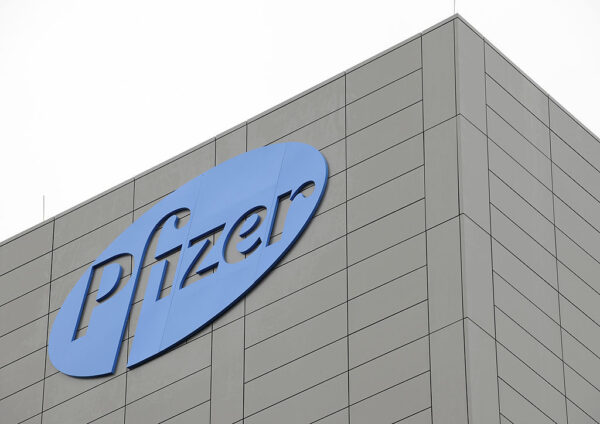
A Pfizer drug recently awarded accelerated FDA approval in colorectal cancer now has additional data showing it met key goals in its pivotal study, results that could support an application seeking full approval as a treatment for patients whose disease harbors a particular genetic signature.
Without releasing specific figures, Pfizer said Monday that treatment with its drug, Braftovi, led to statistically significant and clinically meaningful improvement in progression free survival, one of two main goals of the study. On overall survival, a secondary goal, Pfizer said the results were also statistically significant and clinically meaningful. The pharmaceutical giant said more detailed results will be submitted for presentation at an upcoming medical meeting.
Braftovi is a small molecule inhibitor of proteins with the BRAF V600E mutation, which can lead to activation of signaling pathways that drive certain cancers, including colorectal cancer. The drug was first approved in 2018 as a treatment for advanced cases of melanoma. Pfizer added Braftovi to its portfolio via the 2019 acquisition of its developer, Array Biopharma, in an $11.4 billion deal. For its approved uses in melanoma, the drug accounted for $437 million in revenue for the nine months ended Sept. 30, 2024, a 26% increase compared to the same period in the prior year, according to Pfizer financial reports. Colorectal cancer represents an opportunity to expand the product’s reach.
In late December, Braftovi received accelerated FDA approval as a first-line treatment for colorectal cancer driven by the BRAF V600E mutation. That mutation must be detected by a companion diagnostic. The approval covers use of the Pfizer drug alongside Eli Lilly’s Erbitux and the chemotherapy regimen known as FOLFOX, both of which are standard treatments for colorectal cancer. The speedy regulatory nod was based on the objective response rate, which was the other main goal of the clinical trial, named BREAKWATER. At the American Society of Clinical Oncology Gastrointestinal Cancer Symposium meeting last week, Pfizer presented trial results showing a 61% objective response rate for the Braftovi regimen compared to 40% for chemotherapy. The results were also published in Nature Medicine.
At the time of the objective response analysis, the safety profile of Braftovi in combination with standard colorectal cancer treatments continued to be consistent with the known safety profile of each respective therapy, Pfizer said. The most common adverse reactions observed in the colorectal cancer study included peripheral neuropathy, nausea, fatigue, rash, and diarrhea. With the data on the study’s other goals in hand, Pfizer said it plans to discuss with the FDA the potential for full approval of Braftovi in metastatic colorectal cancer. The company also plans to discuss the data with other regulatory agencies around the world.
“We are extremely pleased with the clinically meaningful progression-free survival and overall survival results from the BREAKWATER study, which have the potential to be practice-changing for this patient population that has historically had limited treatment options and poor outcomes,” Roger Dansey, Pfizer’s chief oncology officer, said in a prepared statement.
Photo by Getty Images










